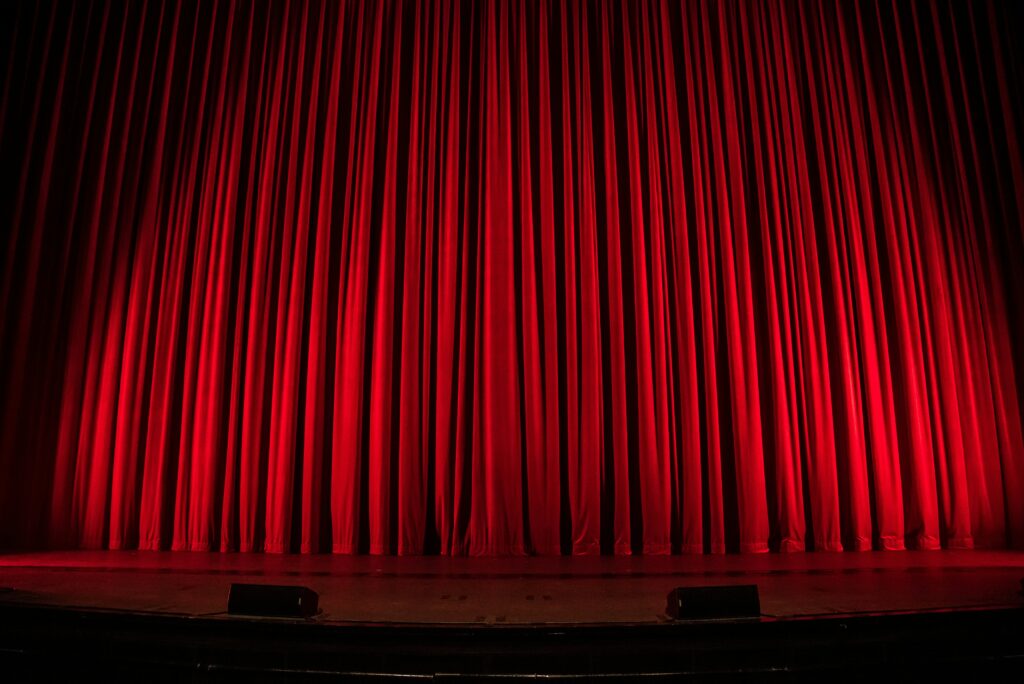Peter Finch says the loss of historic Cardiff watering hole is only partly compensated by its finding a home at the National History Museum
Vulcan – say that word and most likely your listener will tell you that it’s the home planet of Star Trek’s Mr Spock. He was the Vulcan with pointed ears. Some might mention that it’s a process for modifying rubber and also the name for Britain’s best known nuclear bomber. Most, however, won’t recall its origin as the Roman god of fire and volcanos and the name then given to countless iron foundries springing up the length of industrial revolution Britain.
Cardiff’s Vulcan, the Victorian pub on Adam Street at the back of Cardiff prison, was built in 1853 to quench the dry throats of Cardiff’s iron and steelworkers from the nearby East Moors works – Guest Keen and Nettlefolds at the height of their fame. Long gone. And it’s hard today to imagine that the shiny capital that Cardiff now is once possessed a fire breathing filthy giant right at its heart.
The Vulcan dispensed pints by the thousand to workers coming off shift, to working class locals from the nearby and now vanished Irish district of Newtown, to stragglers from Splott and off duty Prison warders. A sawdust floored mix of working men wearing working clothes, sat on rough benches around the pub’s open coal fires, drinking Brains from tall thick-sided pint glasses.
As a pub the Vulcan outlasted the heavy industry which once supplied its main trade. When the steel works closed the Vulcan continued, more quietly now, as a haunt for local drinkers, dartboard, crisps, splendid Victorian urinals, cards games, and more Brains beer. And when the nearby terraces were eventually slum cleared (although none would use that word now) the Vulcan hung on. Stranded now at the end of the late 1990s, the pub stood in isolation in the centre of a hard-topped car park.
Opposite was the resurgent expansionist University of Glamorgan’s Atrium, built on the site of former BT buildings. Next door was student accommodation in non-prize winning tower blocks on Pellet Street. The arrival of St David’s Two, the city centre shopping paradise just round the corner, sealed the Vulcan’s fate. There was a fervent need for the city to expand on into every available brownfield site. The Vulcan was in the way.
The pub was sold by the Brewery to local property developers. More student accommodation could be built on its site. Apartments could be erected. The car park could be extended. Keeping the Vulcan on as a pub serving beer was just not making enough return.
Meanwhile, the pub’s clientele had again changed. With the original local population now rehoused elsewhere, the Vulcan began to attract beer connoisseurs, bohemians, linguists, artists, writers and later students and lecturers from the nearby University. The tavern’s 150-year-old charm still worked. With its cranky darkness, irregular furniture and misshapen rooms the Vulcan was the perfect antidote to the city centre’s glass and aluminium bars housing hundreds of vertical drinkers in shot-fuelled swarms.
A popular and well-publicised campaign to keep the pub open attracted some high profile signatories. The manic Street Preachers’ James Dean Bradfield and actor Rhys Ifans, who you rarely actually saw at the pub itself but whose hearts were clearly in the right place, smiled for the cameras. Fortuitously the campaign co-incided with the global economic crisis. Building development went on hold. The Vulcan was saved, with a license to carry on for another three years.
Brains put in a new tenant and Camra listed it among its top fifty UK pubs. But now the three years are up. And it’s the profits, or lack of them, that the brewery quote as the main reason for the pub’s final demise. It’s no longer commercially viable, they say. It’s hard to see how the Vulcan ever could be, given its small size and expensive city centre location. The writing was always on the wall. Much as local historians, aficionados of the old ways, traditional pub goers and the small coterie of others who still squeeze themselves through the pubs dark doors might regret it, the Vulcan could not go on. Not as it was at any rate.
Cardiff is a young city. Its shape and size is based almost entirely on the dock and steel trade developments of the 19th Century. Beyond the Castle and St John’s Church it has very little that’s old. Cardiff is no Bath or Edinburgh or Dublin. It is not very good, either, at keeping hold of such past as it does possess. When things are in the wrong place the city wipes them away. It did that to most of the pre-St David’s centre, to the Glamorgan Canal, the old town halls, the skating rink on Westgate Street, the zoo at Victoria Park, and the cinemas that once crowded Queen Street. All are gone.
We are good at being new, being an administrative capital and a tourist destination but pretty hopeless at preserving what once made us different. Yet unlike the Red House – the railway hotel, another now demolished Victorian pub that once stood facing the sea on the Ferry Road peninsula – the Vulcan will not be completely lost.
Whereas the Red House was deemed by CADW as not of enough significance to preserve, The Vulcan will be shifted, brick by brick, and re-erected at the National History Museum at St Fagans. That’s a different process, I know. CADW would have needed to force the developer to keep the Red House fabric as part of their apartment new build. The Vulcan will be removed to be rebuilt elsewhere. Iorwerth Peate, the teetotal founder of our west Cardiff national treasure house, will spin in his grave. Beer will be delivered on his sacred site.
One might be forgiven for being just slightly cynical here in noting that the National History Museum’s announcement that it will preserve the Vulcan, donated entirely free by its owners Marcol Asset Management Limited, coincides with the submission of a new application for Museum financial support. Along with the Heritage Lottery, Cardiff Council is being asked to help Wales’ most popular heritage attraction pay for its £24m five-year revamp. That would include, of course, rebuilding the glorious Vulcan.
Five years down the line we may well see it again, sitting out in west Cardiff among the chapels, barns and pigsties, serving beer brewed to 19th Century recipes. It’s an artificial solution and not what campaigners really wanted. It’s a loss to the city’s historical fabric. It gives south Cardiff yet another beerless gap. It feels like we are giving in to mammon. Yes, all those things. But, certainly, its better than nothing.






“Along with the Heritage Lottery, Cardiff Council is being asked to help Wales’ most popular heritage attraction pay for its £24m five-year revamp. That would include, of course, rebuilding the glorious Vulcan.”
Hello. Moving and re-erecting the Vulcan isn’t part of our ‘Making History’ bid to the Heritage Lottery Fund. Thank You.
I was a customer at the Vulcan off and on for many years from the 1970s during visits home, and in the late 1990s and early 2000s it was my local having returned to Cardiff after many years away. Liz Smart (who had been the landlady there for more than 18 years until a couple of years ago) became a personal friend. Even after leaving Cardiff to move abroad again, I could never visit Cardiff without popping into the Vulcan. This was the nature of the place; not just a significant part of social history and a great example of mid 19th century local architecture, this was a living, breathing pub where you knew you were going to at least see a familiar face if you walked in there. Regulars came and went, but people who had moved away from the area (a vast area I might add from Splott to Cathays and from Roath to Canton (these were the ‘locals’ I talk of) still gravitated back sometimes just for an evening perhaps. Unfortunately it was getting in the way of greedy developers despite robust campaigning and petitioning to save this historic site. This is the last traditional pub in the central area of Cardiff. Well, it was. Now that it is going to The National History Museum at St Fagans, I do hope it will still serve beverages – remain that living, breathing pub and sell traditional beers and whiskies from all over Wales. Good bye to the Vulcan, see you in St Fagans. Care should be taken now to ensure souvenir hunters don’t go ripping tiles from the facade of the building; a piece of metaphoric ‘turf’. I would be very grateful to receive contact from IWA in the future. Thanks for the opportunity to respond. Diolch yn fawr.
As one of the campaign team three years ago, St Fagans was definitely not what we wanted then. Nor did St Fagans to be fair – they wanted to see it survive in situ. But now it feels like the only option and I’m mighty glad that Marcol Asset Management has done the decent thing and donated it. Demolition would have been unbearable.
Nice piece from Mr. Finch. I echo his sense of loss re the relocation of this piece of living, breathing, drinking history. And I love his description of himself as a ‘psycho-geographer’ – conjures up a vision of a wild bloke in hiking boots tearing an ordinance survey map to bits in a fury because he’s lost!
“Cardiff is no Bath or Edinburgh or Dublin. It is not very good, either, at keeping hold of such past as it does possess. When things are in the wrong place the city wipes them away.”
Good article, and the above sentence really resonates. In industrial south Wales we seem bent on relentless regeneration at the expense of our past stories.
Yeah but Cardiff are amateurs compared with Bridgend – a dog’s dinner of a town. Their one building of distinction was a town hall. So they knocked it down and put up a brick shed. Every new building looks more cheapjack and uglier than the last. It’s quite fun to see what they will do next.
A lovely article, thanks for writing it.
My sister who died recently loved to visit it. She even took me along once. I hope they do not take too long restoring it in St. Fagans.
It will be nice to see inside it again, and imagine the regulars still chatting and relaxing.